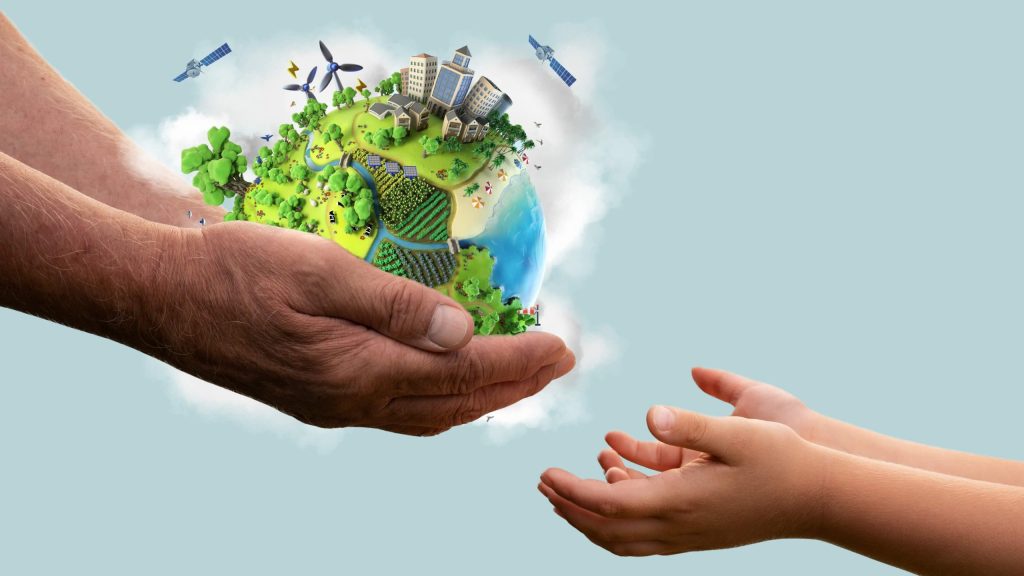Imagine a world where we could predict the future, foreseeing storms, droughts, and floods, making informed decisions that save lives and protect property. This isn't a scene from a sci-fi movie but the reality made possible by the World Meteorological Organization (WMO) and celebrated every March 23 on World Meteorological Day. Born from the need to foster global cooperation in atmospheric science, hydrology, and geophysics, this day marks the anniversary of the WMO's establishment in 1950. It's not just about looking up at the sky and guessing tomorrow's weather; it's a day that underscores the critical importance of meteorological services in our everyday lives. From ensuring flights take off safely to helping farmers plan their crops, the impact of these services is both vast and vital. World Meteorological Day is more than a date on the calendar; it's a reminder of the invisible thread that connects us all to the planet's pulse, urging us to listen closely and act wisely.
Key Takeaway
Timeline
Day Activities
-
Interactive Workshops: Dive into hands-on experiences with interactive workshops where participants can learn about weather forecasting techniques, climate change, and how meteorological data is collected. These sessions aim to demystify the science behind the weather, making it accessible and engaging for folks of all ages.
-
Public Outreach Campaigns: Streets and social media buzz with activity as organizations launch campaigns to spread the word about the critical role of meteorological services. From eye-catching infographics to compelling videos, these efforts shine a spotlight on how weather predictions safeguard lives and property, and support sustainable development.
-
Educational Seminars: Experts take the stage in seminars designed to enlighten attendees on the latest advancements in meteorology. Topics range from the impact of climate change on weather patterns to innovative technologies in weather forecasting. These seminars serve as a bridge, connecting the public with the scientific community, fostering a deeper understanding of the importance of meteorology in everyday life.
Interesting Facts
1. Established in 1950
World Meteorological Organization was founded on March 23, making it a cornerstone for global meteorology.
2. First Celebration in 1961
The inaugural World Meteorological Day took place a decade after the WMO's establishment, spotlighting meteorology's importance.
3. UN's Specialized Agency
WMO, a key UN agency, focuses on weather, climate, and water resources, aiming for safety and sustainability.
4. Promotes International Cooperation
This day underscores the need for global collaboration in meteorology to enhance safety and development.
5. Annual Themes
Each year, World Meteorological Day highlights different themes, educating on meteorology's role in climate change and disaster risk reduction.
Why We Love This Day
-
Celebrating Scientific Achievements
Oh, how we love World Meteorological Day for shining a spotlight on the cutting-edge scientific achievements in meteorology. This day isn't just about looking up at the sky and guessing tomorrow's weather; it's a tribute to the brainy folks who make accurate weather predictions possible. Thanks to their hard work, we can plan our picnics without worrying about unexpected rain or protect our homes from the fury of oncoming storms. It's a day to appreciate the complex science that helps us live safer, more predictable lives. -
Highlighting the Importance of Global Cooperation
Let's not forget, World Meteorological Day is a prime example of how countries can come together for a common cause. In a world that's often divided, this day reminds us that collaboration across borders can lead to incredible advancements. Through the sharing of data and research, meteorologists worldwide help us prepare for whatever Mother Nature throws our way. It's a heartwarming reminder that, despite our differences, we can unite to tackle common challenges and protect our planet. -
Raising Awareness About Climate Change
Last but definitely not least, this day plays a crucial role in educating the public about climate change and its impacts. With each passing year, the stakes get higher, but so does our understanding of what needs to be done. World Meteorological Day helps spread the word on how we, as a global community, can fight against climate change. From simple acts like reducing waste to supporting policies that protect the environment, every bit counts. It's a call to action for all of us to play our part in safeguarding our home for future generations.
Past & Future Dates
| Month | Day | Year |
|---|---|---|
| MARCH | 23 | 2022 |
| MARCH | 23 | 2023 |
| MARCH | 23 | 2024 |
| MARCH | 23 | 2025 |
| MARCH | 23 | 2026 |
| MARCH | 23 | 2027 |
| MARCH | 23 | 2028 |
FAQ
Why do we celebrate Meteorological Day?
It showcases the essential contribution of National Meteorological and Hydrological Services to the safety and wellbeing of society and is celebrated with activities around the world. The themes chosen for World Meteorological Day reflect topical weather, climate or water-related issues.
What is the 23rd March observed as?
In March, Shaheed Diwas is observed on March 23 to commemorate the fateful day when three freedom fighters – Bhagat Singh, Shivaram Rajguru, and Sukhdev Thapar – were hanged by the British Government. As we gear up to observe Shaheed Diwas, here are a few things to keep in mind.
What is the theme of the WMO day?
The themes chosen for World Meteorological Day reflect topical weather, climate or water-related issues. The theme for World Meteorological Day 2024 is "At the frontline of climate action".
How to wish World Meteorological Day?
Wishing someone a Happy World Meteorological Day can be done by acknowledging the importance of meteorological services in our daily lives. You could say, 'Happy World Meteorological Day! Let's appreciate the crucial role of meteorological services in keeping us safe and informed about the weather, climate, and water-related issues.'
